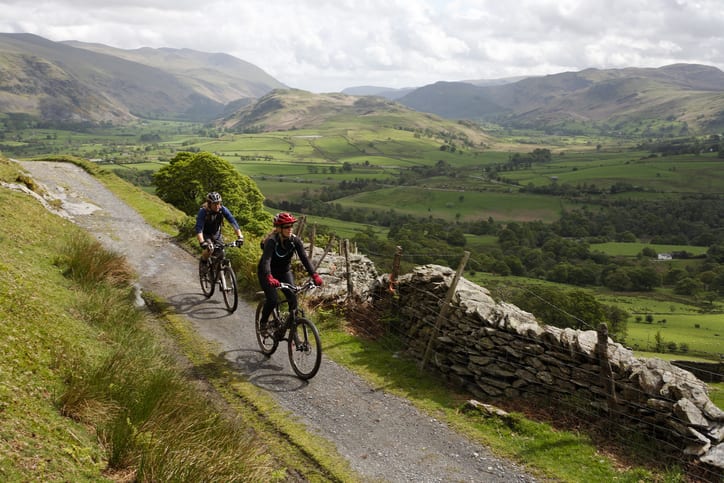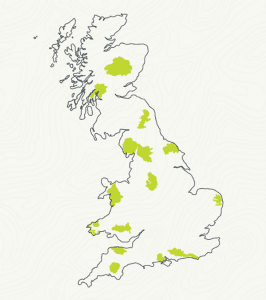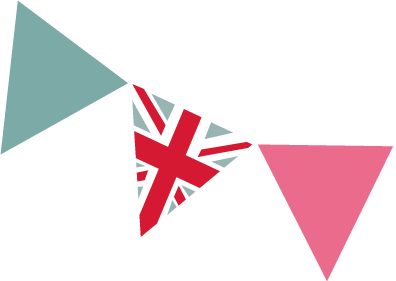
Connecting with nature and gaining physical and spiritually renewal from time spent outdoors has never been more necessary. For over 70 years our National Parks have been inspiring visitors with their stunning natural splendour, beautiful wildlife and fascinating cultural heritage. These exceptional areas have been designated on behalf of

the entire nation because of their incredibly special qualities – they are simply unique.
There are 15 National Parks in total, ten in England, three in Wales and two in Scotland:
Scotland – Cairngorms and Loch Lomond & The Trossachs.
England – Broads, Dartmoor, Exmoor, Lake District, New Forest, Northumberland, North York Moors, Peak District, South Downs and Yorkshire Dales.
Wales – Brecon Beacons, Pembrokeshire Coast, and Snowdonia
With Covid still part of our lives, the National Parks UK have put together a four step guide to planning a visit during the pandemic which you can find here.
General hints and tips to get the most out of your visit
We have summarised advice from the National Parks website on how to have a great visit and stay safe.
Dress the part
The Lake District Rangers have coined the term Crocaneer for people that try to climb hills and mountains in sliders. It’s not a good idea!
To coin the well used phrased – there’s no such thing as bad weather, only unsuitable clothing. There’s no need to spend lots on expensive gear, but you should have suitable clothing for conditions that you might face. Check with National Parks for their advice on what you might need depending on your plans and the season. Hot and sunny at the bottom of a hill can quickly turn to cold and wet even half an hour into a climb. The best advice is to always check the forecast before you set out and always err on the side of caution.
Getting there
If you are travelling by car, it’s important to check that parking is available at your intended destination. Check the website of the National Park you are visiting. It’s also worth considering using public transport, it’s more environmentally sustainable and you can enjoy a well-deserved pint or glass of wine at the end of the day.
Do you have to pay to get into a National Park?
There is no cost to enter a national park in the UK. Our National Parks were founded in the same post war social reforms that saw the creation of council housing and the NHS, and are free at the point of access. They are also the homes and workplaces of many people.
What is the Countryside Code?
Whenever you are visiting the countryside, it’s important to follow the Countryside Code. This helps keep you safe and helps you protect the wildlife and landscapes that you’re visiting. You can download a short COVID updated version here and the full version here. Scotland has its own version called the Outdoor Access Code which you can find here.
Who collects the rubbish?
If you put your rubbish in a bin it will usually be the local authority that collects it. However if you drop it in the countryside then I’m afraid that a bird, a squirrel,or other wildlife may be the next one to find it. As with the rest of the British countryside, when you are visiting a National Park plan to take all your rubbish home.
RURALMUM TIP – always carry a bag in your rucksack so you can keep all your rubbish together.
Know the way
As my family have discovered, you can’t rely on having a phone signal in National Parks even on popular routes. The National Parks all have great guides to established walks and maps and many of these are designed especially for the inexperienced walker and map reader.
Will there be anyone to help me if I get lost?
National Parks do employ Rangers – in Scotland they are called Wardens – their role involves a broad range of things but you may not see one even if you are out for an entire day walking.
Can I get WiFi or mobile signal in National Parks?
It’s unlikely that you will get WiFi unless it’s supplied by your accommodation, cafe or a pub you’re in. You might not even get a phone signal.
Should I always shut gates in the countryside?
The Countryside Code says that gates should be left the way you find them. If they are open, please leave them open.
Can I camp in a National Park?
Much of the land in National Parks is privately owned and therefore you need to follow the guidance given by each National Park about camping, it can be quite restrictive but that’s with good reason. Read the Ruralmums article on camping here.
Parks for all
National Parks in the UK have 204 routes specified as suitable for those with access challenges.
National Park experiences
The National Parks Experiences initiative is a collection of activities that offer an authentic insight into the landscape and special qualities of a National Park. They include Explore Dartmoor on horseback and guided discovery walks – the one that caught my attention was the Hound of the Baskervilles tour. A proportion of the booking fee is reinvested into sustainable tourism initiatives.
Getting around
Even if you do intend to visit by car, it’s worth considering public transport as a link in your journey once you arrive. The parks have lots of information on this – think about making the journey part of your adventure.
A bed for the night
You can find accommodation to suit every budget and taste. There are luxury hotels, cosy rental cottages, B&B’s and to get closest to nature – camping. Always check on local restrictions and permissions. Youth hostels can be a cost effective option and can offer accommodation for the whole family.
Can I have a campfire or BBQs?
The answer here is definitely a no – unless you are in a campsite which specifically allows BBQs. Wildfires cause irreparable damage every year and place life and property in danger, and they are often caused by the single use BBQs.
Can I bring my dog to a National Park?
Dogs are very welcome as long as they are kept under control and you follow any signs to put them on their lead. If your dog does a poo – anywhere – bag it and put it in a bin.
More information on our National Parks can be found here.


